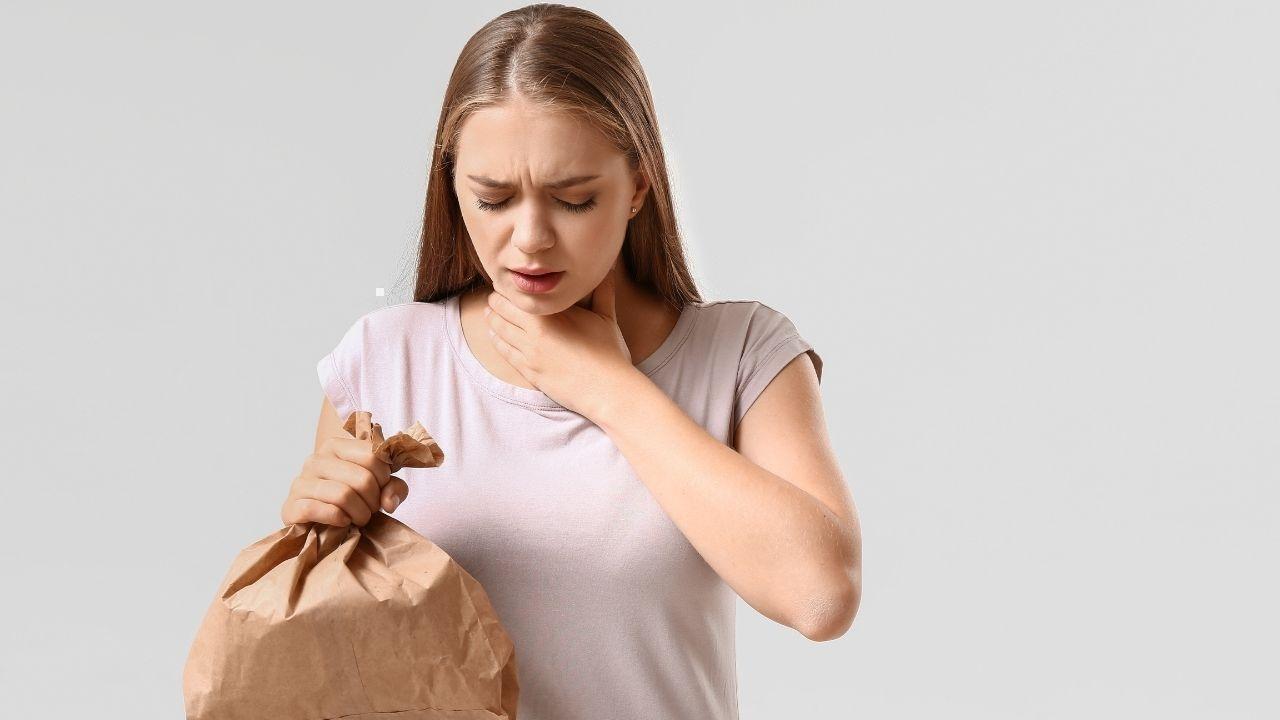You have not yet added any article to your bookmarks!

Join 10k+ people to get notified about new posts, news and tips.
Do not worry we don't spam!

Post by : Mikael Ariff
Have you ever been overwhelmed by a sudden sensation that you can't get enough air—your chest tightens, your pulse quickens, and each inhalation feels insufficient? Many people mistake this for a cardiac or respiratory emergency. Frequently, however, the cause is psychological rather than physical.
This reaction—known as hyperventilation—occurs when stress or panic alters normal breathing patterns. It is a common bodily response to anxiety, and knowing the mechanisms behind it makes it far easier to manage.
Hyperventilation describes breathing that is too rapid or too deep for the body's current needs. It commonly appears during moments of fear or high stress. When you breathe this way, your body expels carbon dioxide faster than it is produced.
A drop in blood carbon dioxide can prompt the brain to misinterpret the situation, producing sensations of breathlessness even while breathing is elevated.
Common signs include:
A sense of chest tightness or shortness of breath
Dizziness or feeling light-headed
Pins-and-needles in fingers, lips or toes
Accelerated heartbeat
A feeling of unreality or faintness
Because these sensations are intense, they are sometimes confused with heart attacks or severe asthma, which can heighten panic and worsen breathing.
During anxiety, the body engages its "fight-or-flight" machinery. This prepares you to respond to danger by increasing heart rate, tensing muscles and speeding respiration.
In modern life, threats are often emotional—work pressure, exams or relationship stress—yet the physiological reaction is the same. Breathing quickens despite no physical need for extra oxygen.
The result is a familiar loop:
Anxiety → Rapid breathing → Light-headedness → Heightened panic → Even faster breathing
Spotting this cascade early and reminding yourself you are safe can help you interrupt it and slow your breathing.
Shortness of breath from anxiety can mimic asthma, but several markers help distinguish the two:
| Feature | Anxiety / Hyperventilation | Asthma |
|---|---|---|
| Onset | Sudden, linked to stress or panic | Usually follows exposure to triggers like allergens, cold air or exertion |
| Breathing sound | Rapid, shallow breaths without wheeze | Often accompanied by wheezing or a whistling sound |
| Relief | Improves with paced breathing and relaxation | Typically requires inhalers or prescribed medication |
| Oxygen level | Generally maintained within normal range | May fall during severe bronchospasm |
If the cause of your breathing difficulty is unclear, seek medical assessment to rule out other conditions.
When an episode starts, a few targeted actions can quickly help steady your respiration and nerves.
Inhale gently through the nose for 4 seconds
Hold your breath for 7 seconds
Exhale slowly through the mouth for 8 seconds
Repeat the cycle for several minutes
This approach calms the nervous system and helps rebalance oxygen and carbon dioxide.
Cover your nose and mouth with cupped hands and breathe slowly. This raises the carbon dioxide level you inhale and often reduces dizziness.
Refocusing on the environment can interrupt a panic spiral:
5 things you can see
4 things you can touch
3 sounds you can hear
2 scents you can notice
1 taste you can identify
Grounding your attention in the present moment helps diminish panic and restore control.
Regular practices such as yoga, mindful walking or meditation reduce baseline stress and make breathing steadier over time.
Short-term techniques are valuable, but sustained improvements come from consistent changes and professional support.
Helpful measures include:
Therapy: Working with a counsellor—particularly using Cognitive Behavioural Therapy—can reshape anxious thinking and reduce physical symptoms.
Healthy routines: Prioritise sleep, balanced nutrition, and limit stimulants like caffeine and nicotine that can aggravate anxiety.
Exercise: Regular activity improves lung efficiency and releases natural mood-lifting chemicals.
Social ties: Talking with friends or family can relieve stress and offer perspective.
If anxiety or breathing difficulties interfere with daily life, professional advice can make a meaningful difference.
Some causes of breathlessness require urgent care. Consult a doctor if you notice:
Persistent chest pain or pressure
Severe fainting or profound dizziness
Blue lips or fingertips
Breathing that does not ease with calm-focused techniques
When in doubt, it is safer to seek assessment to exclude serious medical causes.
Feeling out of breath can be frightening, yet recognising anxiety as the driver gives you tools to respond. Hyperventilation signals that your nervous system needs to slow down—by learning and practising calming methods, you can regain control.
With time, awareness and routine practice, these episodes can become less frequent and less intense. Remember—your breath is a grounding resource you can use to steady both body and mind.
This piece is intended for informational purposes only and does not substitute for professional medical or mental health advice. If you have ongoing breathlessness, chest discomfort, or frequent panic episodes, please consult a qualified healthcare practitioner for assessment and tailored care.










Study Warns Using AI for Medical Advice Is ‘Dangerous’ as Users Get Inaccurate Health Guidance
A major new study reveals that artificial intelligence (AI) chatbots and tools may give misleading o

Top Sci-Fi Movies Streaming on Netflix This February: Must-Watch Picks for Genre Fans
A curated news-style guide to the best science fiction films currently available on Netflix in Febru

BCCI Central Contracts Shake-Up: Kohli, Rohit Moved to Grade B as Board Reshapes 2025–26 List
Virat Kohli and Rohit Sharma have been placed in Grade B in the BCCI’s 2025–26 central contract list

Dalal Street Spotlight: Top 10 Stocks Investors Are Watching as Markets Open on a High
Indian stock markets begin the week with strong momentum, and several blue-chip and mid-cap stocks a

Market Movers Today: Key Stocks Set To Watch In Indian Markets
Indian equity markets are poised for active trading as several major companies, including Bharti Air

Milan Welcomes the World: Inside the Grand Opening Ceremony of the 2026 Winter Olympics
The 2026 Winter Olympics opening ceremony in Milan marked a defining moment for global sport, blendi